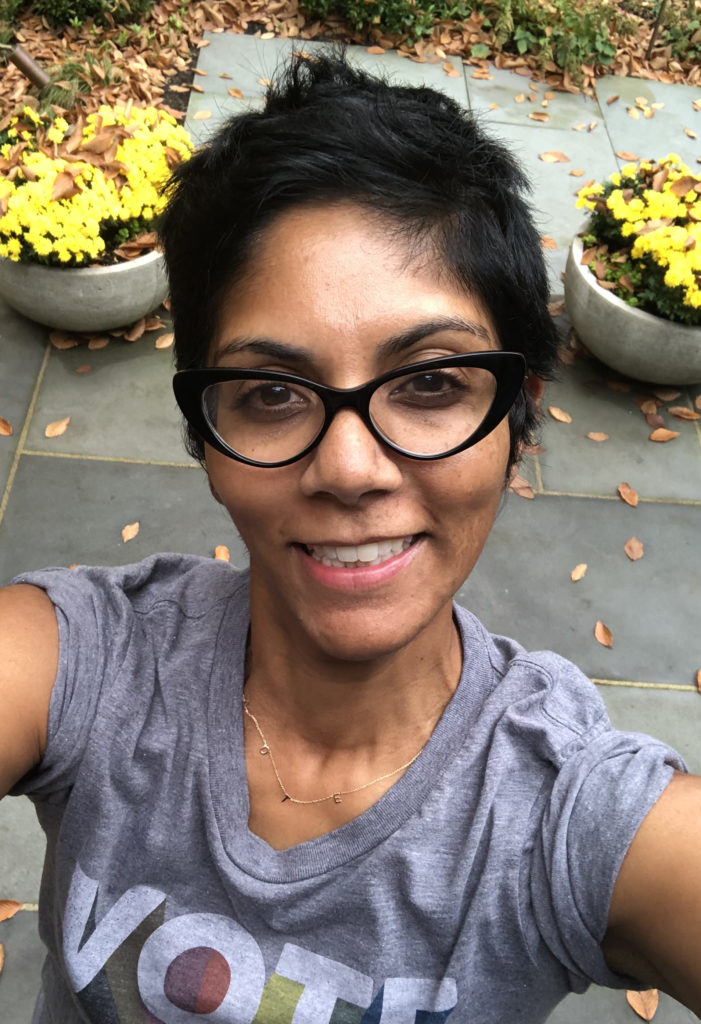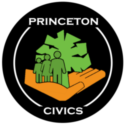Civic leaders take many forms around the world. Some lead national or global social movements, inspiring millions with their work. Others legislate and adjudicate change, working within political and governmental roles. Yet others work locally, touching the lives of many around them. Here in Princeton, one local civic leader is Mrs. Neena Patil, founder of the New Jersey Youth Civics Coalition, or NJYCC, a non-partisan coalition committed to developing the next generation of young citizens in New Jersey

Through the Social Pioneer program at NJYCC, Neena served as my mentor and instructor during the initial planning and preparation of Princeton Civics. I had a chance to have a conversation with her about the importance of civic engagement, especially to young people in society. Uniquely, I was also able to learn about how her upbringing and her life today influences her views and goals as a community leader.
Growing up, Neena expressed gratitude towards the thorough civic education she received as a student in elementary through high school years. She vividly remembered that her 9th grade social studies teacher, Mr. Bennett, helped her to understand how interconnected people are as a global community and the role each of us play in that. She believes that this education contributed to her interest in government and law which leads her career path to serve as the Chief Legal Officer and Senior Vice President at Jazz Pharmaceuticals now. She says “there is magic in civic education and engagement. Students who participate in civic learning not only demonstrate strong overall academic performance, but also strengthen important skills in critical thinking, persuasion, conflict management and collaboration, and develop greater confidence when faced with challenging or unfamiliar situations. The benefits are far reaching.”
However, while raising her own sons, Neena found civic education among America’s youth is declining, and many researches have shown that the state of civic engagement among young people is troubling. For example, only 18% of 8th graders are “proficient” or better in US history, 23% in civics and government. More troubling, only 1-2% score as “advanced” in these fields. Disappointed by the poor civic learning quality at school and rare alternative resources in the Princeton community, she and her husband decided to do something to reverse these trends before society gets impacted. That is when the Princeton Youth Programs for Civic Engagement was founded.
Originally the couple focused on creating local civic learning opportunities with community partners like the Princeton Library, YMCA, Princeton Farmers Market, and Princeton Public Schools. During a Summer of Civics series at the Princeton Farmers Market, they held a mock election, where kids (and adults) could vote for their favorite summertime treat (s’mores or apple pie). Neena remembers a young girl who stopped over with her mom. She was very nervous and wasn’t talking, but the simple act of “voting” for something that she liked brought the biggest smile to her face. “It is the power of civic engagement and knowing that each of us can make a difference simply by exercising this important right to vote.”
Other programs include Constitution Day Poster Contest, and the Social Pioneer Program which I participated in. These programs are creative ways to inspire students of all ages to learn about US history and their role in society.
Over time, they received supportive feedback from outside the Princeton region, leading them to expand their focus statewide. ”We feel that it is important that all young citizens in the state be offered a robust education on history and civic knowledge skills, and are prepared to take on the important role of citizen, so we are now working at the state level to ensure this happens”. One major effort is to advocate equity in civic education and to engage students from communities of color or rural areas traditionally underrepresented in civic life. Neena stressed the positive impact of civic engagement on the health of communities and democracy, and on individual students when they understand that they have a voice and can make a difference in their communities. She believes that providing young people with the tools to effectively participate in their community today helps them develop skills needed to become effective leaders in the future.
Just like many community activities, the COVID-19 pandemic has placed a dent in NJYCC’s projects. However, light can still be drawn from the darkness. Neena noted that the pandemic highlights the need for a strong community, one that people can come together and support each other. That makes her feel the easy access to civic engagement opportunities is crucial to quicken the response of benevolent community members. Moreover, the pandemic has also highlighted there is still work to be done to ensure equity in our communities.
Inspired by her parents’ role models for civic engagement, Neena finished with a few words of advice for today’s aspiring youth. “Our country’s founders recognized that the success of our democracy depends on dedicated people committed to understanding and embracing citizenship. This commitment must be renewed with each generation…. I encourage each of you to find something that you are passionate about and jump in and get involved. Find your voice. You all have the ability to make positive change in society!”
As a student of Mrs. Patil, I am forever grateful for the insight she has given me into the world of civic education and the unwavering support of my project. Through this interview, I hope Mrs. Patil has inspired you just as much as she has inspired me!
– Han Li
